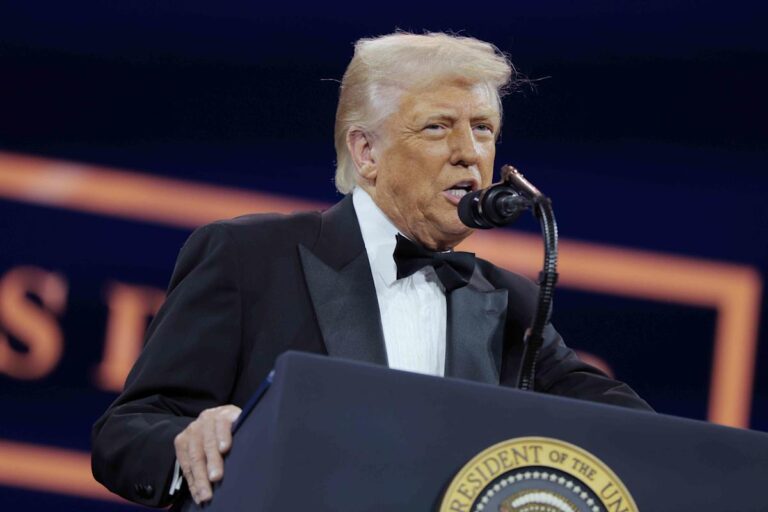Trump Threatens Tariffs on Pharmaceuticals, Causing Stock Declines
On April 8, 2025, during a dinner event hosted by the National Republican Congressional Committee, President Donald Trump announced forthcoming tariffs targeted at the pharmaceutical industry. This declaration has sent shockwaves through the market, notably impacting stock prices for several major drug manufacturers.
Shares of prominent pharmaceutical companies, including AstraZeneca, Pfizer, Eli Lilly, Novo Nordisk, Johnson & Johnson, GSK, and Sanofi, experienced declines on Wednesday morning following Trump’s announcement. The prospect of these tariffs has raised concerns among investors about the financial health of the pharmaceutical sector.
Potential Pharmaceutical Tariffs on the Horizon
President Trump indicated that the upcoming tariffs are intended to incentivize pharmaceutical companies to relocate their manufacturing facilities back to the United States. “We’re going to tariff our pharmaceuticals, and once we do that, they’re going to come rushing back into our country because we’re the big market,” Trump stated, emphasizing the benefits of domestic manufacturing.
The pharmaceutical industry had previously been exempt from the broader tariffs introduced last week, which went into effect on Wednesday. This exemption has now come into scrutiny as talks of new tariffs loom overhead, igniting fears among investors about future profitability within the sector.
Impact on Pharmaceutical Stocks
The announcement has led to significant declines in stock prices across the pharmaceutical landscape. Investors and analysts are closely monitoring the situation, which reflects the volatility and uncertainty that can arise from government policies impacting major industries.
Economic Considerations and Expert Analysis
Experts caution that while the intention behind imposing tariffs may be to revitalize U.S. manufacturing and create jobs, there may be unintended consequences. The increase in tariffs could contribute to rising prices for consumers and might lead to job losses even before any potential manufacturing gains materialize. This perspective suggests a complex balancing act between national interests and economic stability.
As the situation develops, it will be critical for stakeholders within the pharmaceutical industry, including investors and consumers, to stay informed about policy changes and market reactions. The potential for tariffs presents both risks and opportunities that could reshape the industry landscape in the coming months.
Conclusion
The prospect of significant tariffs on pharmaceuticals reflects President Trump’s ongoing commitment to reshape the American manufacturing landscape. As companies brace for potential changes, the financial ramifications are already being felt in the stock market. The outcome of this policy initiative remains uncertain, but its influence on the pharmaceutical sector will continue to unfold in the coming weeks.
For more insights and updates on this developing story, stay tuned to trusted financial news sources.
